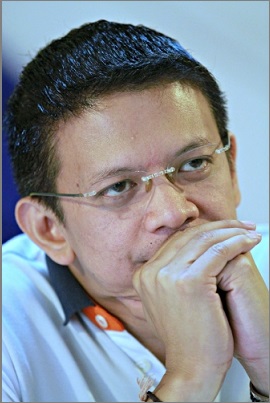MANILA, Philippines —The Senate may cite Janet Lim-Napoles in contempt and order her longer detention at Fort Sto. Domingo in Laguna even if her bail petition is granted by the court, a senator said on Wednesday.
Napoles, who has been detained for serious illegal detention of her cousin and whistle-blower Benhur Luy, has a pending petition in court to allow her to post bail.
And while she may invoke her right against self-incrimination when she appears and testifies before the Senate blue ribbon committee on Thursday, Senator Francis “Chiz” Escudero said Napoles might still be cited in contempt if the committee disagrees with the invocation of such right.
“Under our rules, if the Senate does not agree with the invocation, she can be cited in contempt. But the Senate should look into this because she’s already detained in Sta. Rosa. Usually, those cited in contempt is detained in the Senate. We have aircon here, better than that of Sta. Rosa,” said Escudero, who initiated the “pork” investigation in the Senate.
“But since there’s a commitment order already from the court, she will still be detained in Sta. Rosa even if we cite her in contempt. Even if she’s allowed to post bail, if the Senate has issued a contempt order against her, then that’s another reason to keep her where she is being detained now,” he said.
Escudero said a majority vote of committee members is needed to cite Napoles in contempt though he said the usual practice in the Senate authorizes the committee chairman to unilaterally cite a person in contempt unless a member objects or calls for a vote.
Aside from possible continued detention in Laguna, Escudero said Napoles’ invocation of her rights against self-incrimination might just reinforces speculations that she was hiding something.
“If there are basic questions that you can’t and don’t want to answer, then it’s clear that you’re hiding something,” he said.
“We have what we call under the rules on evidence admission by silence where you’re asked or accused of something and the natural reaction is to deny it if it’s not true,” Escudero.



